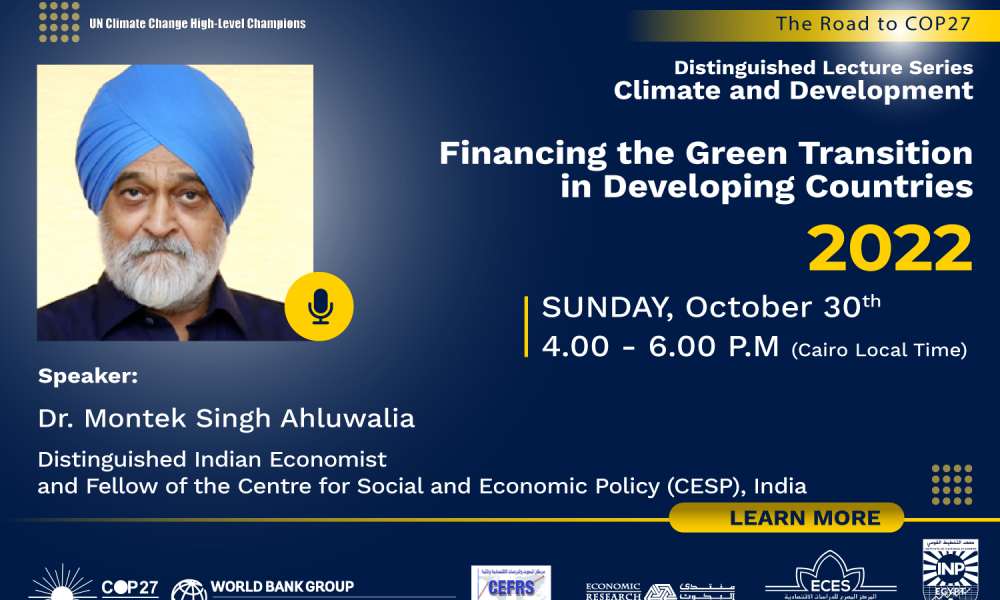This conference comes after the occurrence of the COP27 in Sharm El-Sheikh, and as a continuation to the series of events we started back in June 20th, 2022, and the Follow-up Conference held in October 3rd, 2022, in addition to the 6 Webinars emphasizing “The Voice of Africa”. Topics of discussion: This conference took place on February […]
With Egypt hosting COP27 this month, the Middle East and Africa are in a unique position to take a leadership role on global climate adaptation efforts, particularly in light of the broad spectrum of worsening climate change impacts that are already afflicting the region. The urgency to adapt to the mounting challenges posed by extreme […]
COP27 Presidency, Dr. Mahmoud Mohieldin UN Climate Change High-Level Champion for COP27 and the World Bank Group in partnership with the Center for Economic and Financial Research & Studies (CEFRS), the Economic Research Forum (ERF), the Egyptian Center for Economic Studies (ECES) and the Institute of National Planning (INP) have the pleasure to invite you […]









